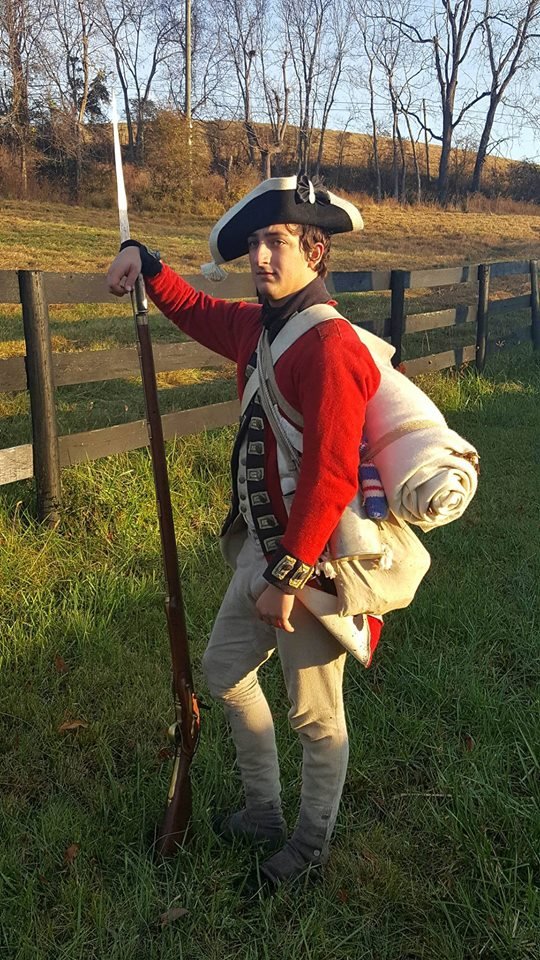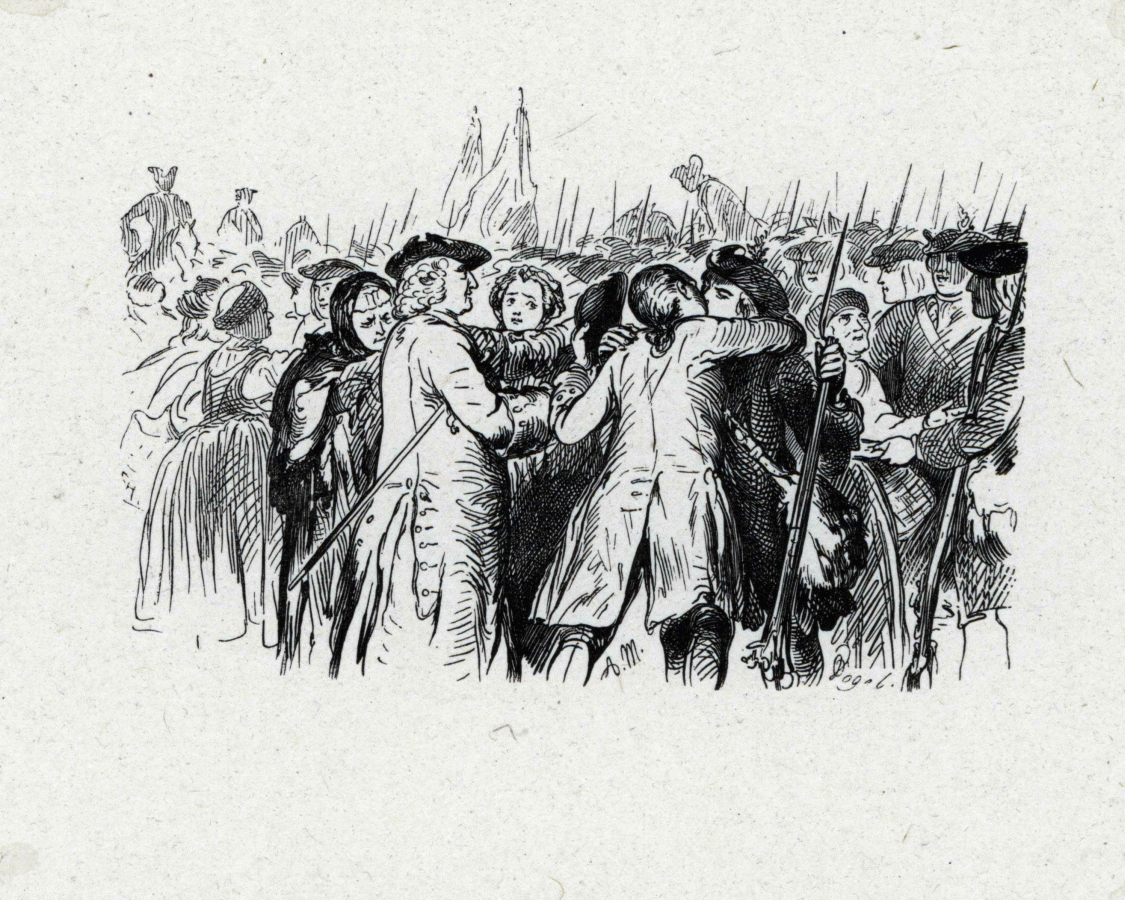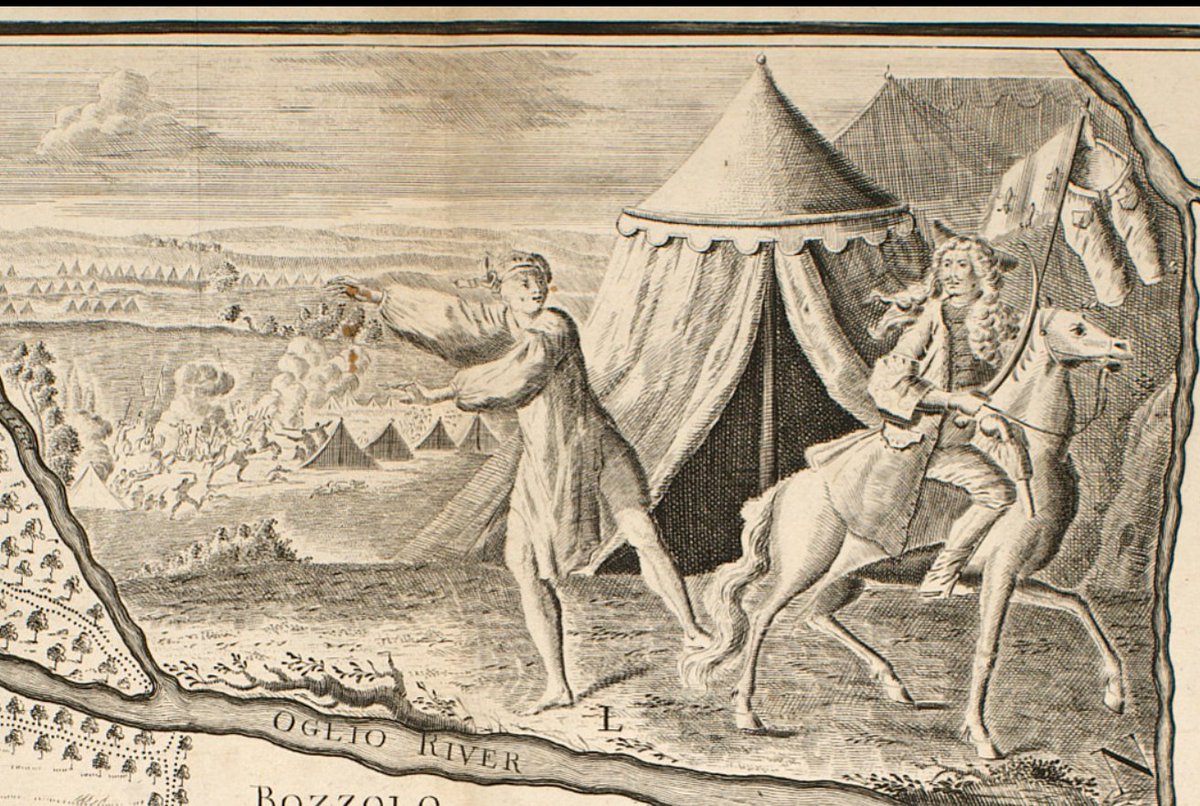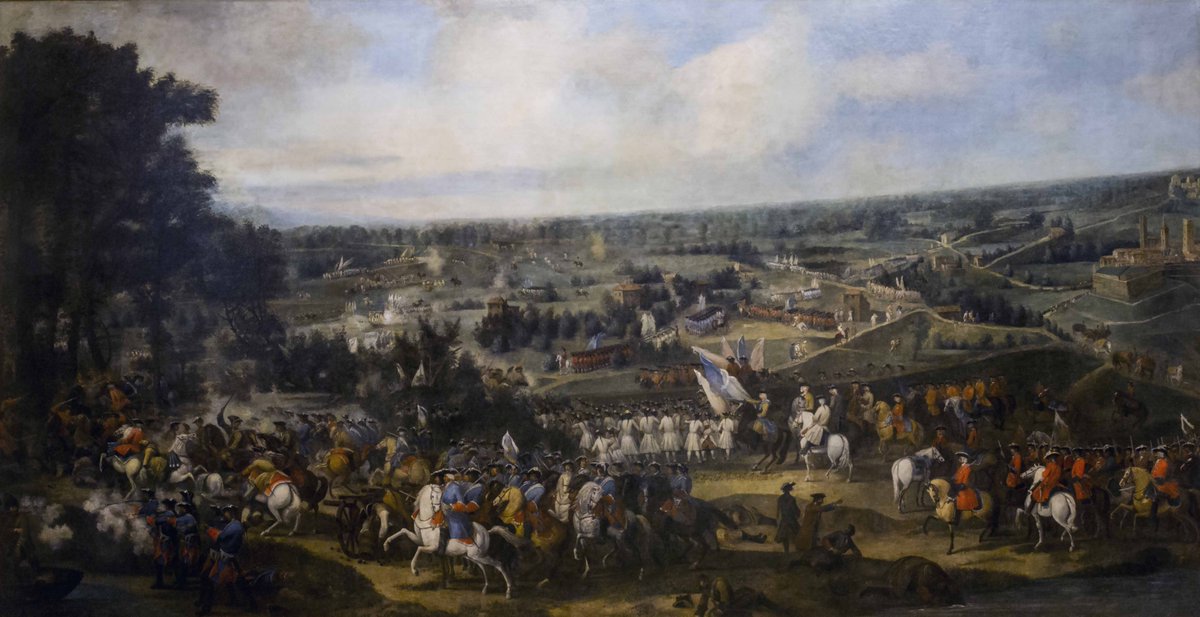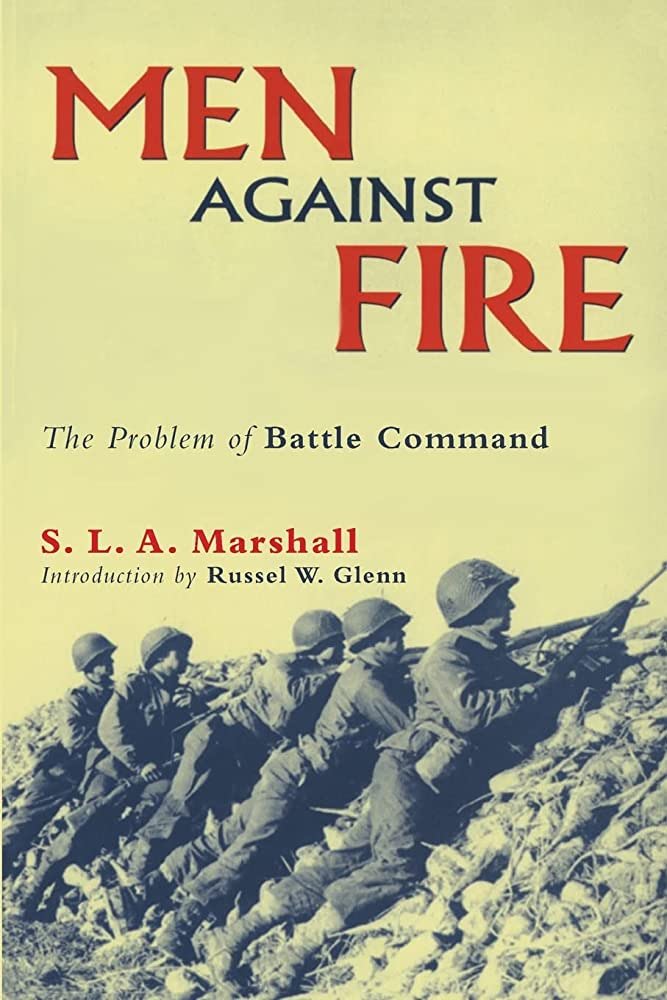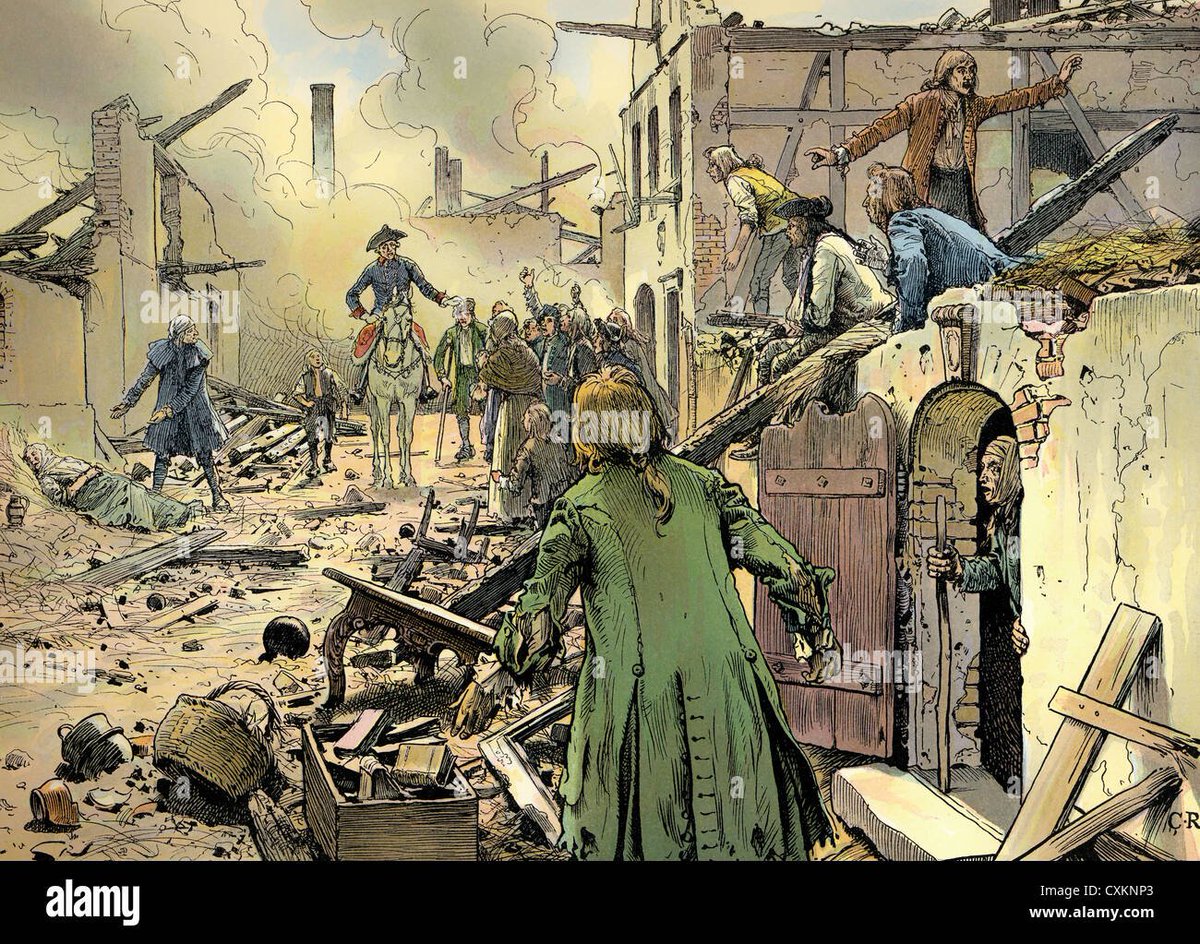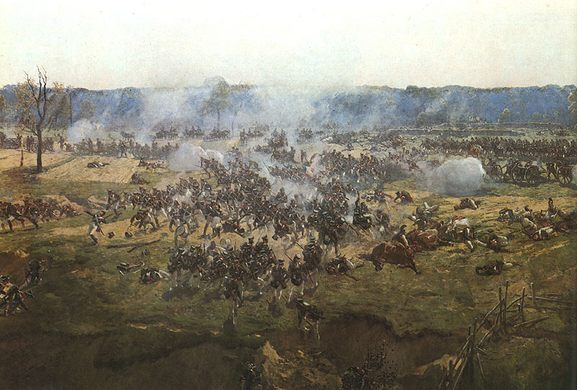In the war in Ukraine, there's been attention to "blocking detachments" as a historical phenomena: having troops execute soldiers who run away.
I often see this referenced as an idea of "clash of cultures" ie: the Russians are dumb. In my period, George Washington used them. 1/
I often see this referenced as an idea of "clash of cultures" ie: the Russians are dumb. In my period, George Washington used them. 1/
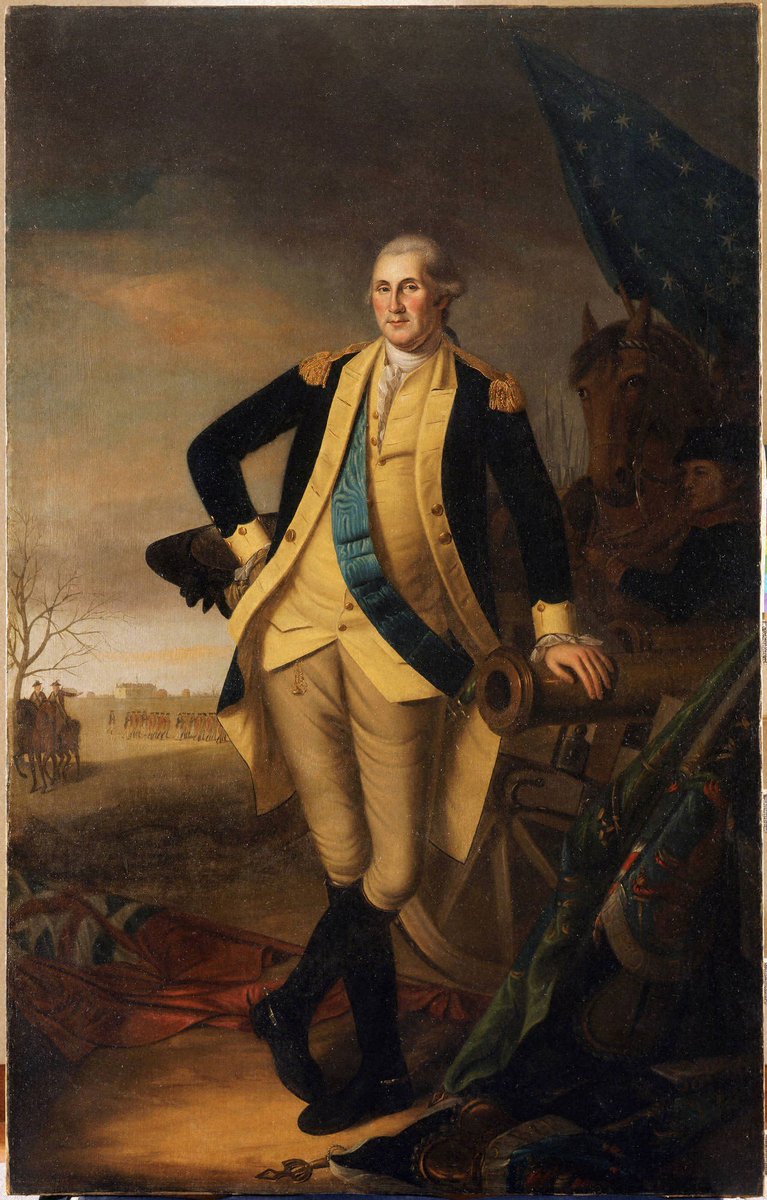
Washington reminded Continental army officers that they could kill the men under their command in 1776-1780. In Washington's view, Continental soldiers could be executed for a variety of battlefield failings. 2/16
He recommended summary execution for soldiers who “skulk”, “hide”, “lay down…without orders”, “retreat”, “quit their posts without orders”, and “turn [their] back and flee.” By 1779, Washington instructed officers to kill men for removing muskets from their shoulder. 3/16 
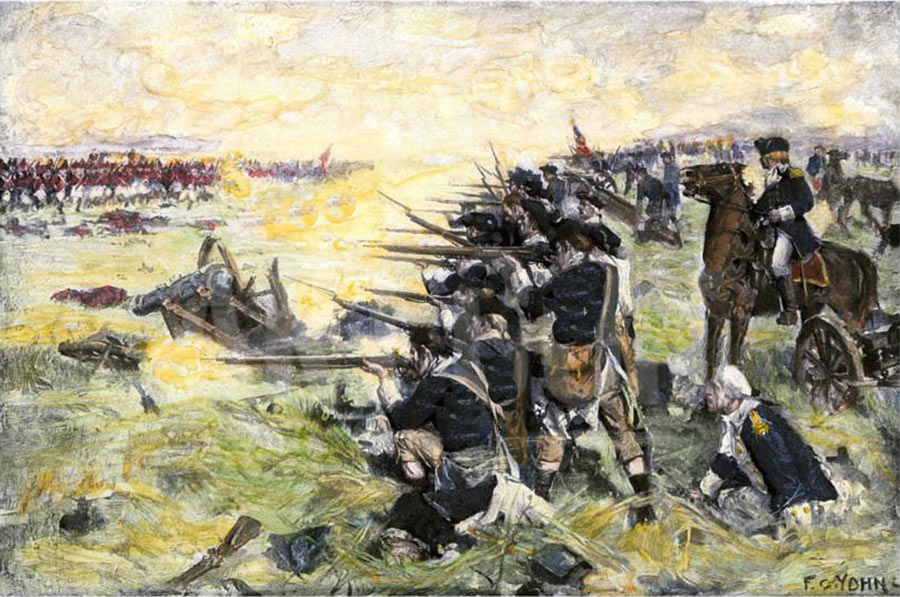
Four days after the Battle of Brandywine, Washington wrote that, "The Brigadiers and Officers commanding regiments are also to post some good officers in the rear, to keep the men in order and if in time of action, any man, who is not wounded whether he has arms or not..." 4/16
"... turns his back upon the enemy and attempts to run away, or retreats before orders are given for it, those officers are to instantly to put him to death. The man does not deserve to live who basely flies, breaks his solemn engagements, and betrays his country." 5/16
This seems horrifying to us in the 21st century, but was one of the many ways that Washington was a man of his time. Moreover, contemporary civilians weren't horrified by this, and in some cases, even offered encouragement. 6/16
John Adams wrote to Henry Knox in September of 1776, playfully arguing that the Continental Army needed to adopt the “good old Roman fashion of decimation,” (executing every 10th soldier) to focus the minds of the soldiery on their tasks. 7/16
Subordinate commanders often agreed: at the Battle of Guilford Courthouse in 1781, Brigadier General Edward Stevens placed a few riflemen behind his battleline, with orders to shoot down any troops who withdrew prematurely. 8/16
The American Revolutionary longriflemen is a beloved figure in myth and legend as an example of the freeborn American's superiority over European rigidity and despotism. It seems some of them also served in blocking detachments. 9/16 

Did these officers and men actually follow through, or was this just a threat? It they usually did not, but at Stony Point in 1779, a group of continental soldiers were ordered to attack without loading their weapons: a bayonet assault. One soldiers didn't get it. 10/16
William Heath recalled, "the soldier observed that he did not understand attacking with his piece unloaded; he was ordered not to stop , at his peril ; he still persisted, and the officer instantly dispatched him." 11/16
So in some cases, threats were backed up with force. George Washington's Continental army, following the contemporary practice of other European armies, used this practice. 12/16
I would imagine this will get 3 reactions:
1) Why are you making excuses for Russia
2) Why do you hate George Washington
3) Why do you hate American History 13/16
1) Why are you making excuses for Russia
2) Why do you hate George Washington
3) Why do you hate American History 13/16
1) I'm not: I think that in a modern context, blocking detachments are abhorrent. If the fight isn't going your way, threatening to execute your men won't help. Blocking detachments are an example of the way the Russian military is behind the times. 14/16
2) I don't: I actually think George Washington was a competent commander who achieved American independence (with a lot of help) by creating a professional army of his time, like other states in military Europe. He also set vital political precedents. 15/16
3) I'm here to examine the past as it actually occurred, I love US history, and want to see it accurately represented, even the parts that might make us uncomfortable. Riflemen were used in blocking detachments, they also defeated the British and helped make a better world. 16/16
@slip_trace There are a lot of instances (which I didn’t list ad nauseum here) of continental officers threatening to kill their men with swords during battle. That will be in the book when it appears in a few (hopefully two-three) years.
@KevinSDouglas Skirmish outside New York, July 1781: "Ensign Smith told his men, frankly, “the first that gave back he would cut off his head with his sword.”
@KevinSDouglas I don't disagree with you that threats happen WAYY more than some sort of consistent policy of blocking detachments, but threats did happen, even at relatively successful engagements like these two.
• • •
Missing some Tweet in this thread? You can try to
force a refresh

 Read on Twitter
Read on Twitter

